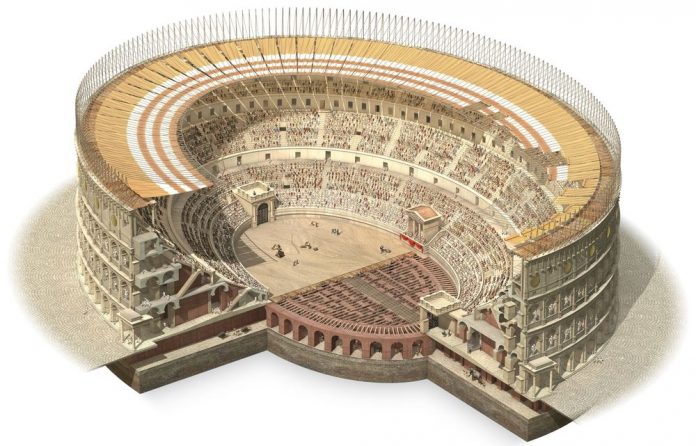The exact year is known, the 30th BC, when the era of Hellenism ended. If you follow the line of the well-known plot, then you can calculate the day, the hour, and even the second of a dramatic historical turn. It happened at the moment when the poisonous teeth of the snake touched the beautiful breast of Cleopatra, the last queen of Egypt. Under the onslaught of Rome, a new player on the world political scene, the dynasty of Ptolemy, one of the military leaders of Alexander the Great, who received the Land of the Pyramids during the partition of the Empire, fell.
While the Greeks and their spiritual heirs, the companions of Alexander the Great, were making history and building huge empires, on the Apennine Peninsula, on the Italian “boot”, at first a modest community, located on seven hills in the Tiber Valley, stubbornly built its powerful state. At first Rome was ruled by kings, but in 509 BC the inhabitants expelled another arrogant monarch (his name was Lucius Tarcinius the Proud) and switched to a republican form of government. For a long time they were in the shadow of their great neighbors, participating only in local wars. At the same time, the Romans were not ashamed to learn, adopting from the Hellenes all the best, from the Olympian gods to philosophical systems and artistic traditions.
Soon they had their own achievements, for example, the system of law, according to which lawyers are still studying, knowledge in engineering and medicine that has not been outdated for centuries, successes in military science that made the Roman army the strongest in the ancient world. Roman diplomacy also had great victories. The zone of political influence of the once ordinary city was steadily growing, and it was not enough for the Romans to simply conquer the peoples. The case was considered completed when the defeated became allies, an organic part of the empire. From the point of view of the Romans themselves, they brought only good to the world – order, law and prosperity, as well as bridges, roads, water pipelines and rational planning of cities. And therefore the citizens of the great city were very surprised if they resisted for too long and stubbornly, like, for example, stubborn and unreasonable Jews, who had to be punished for incorrigible separatism by destroying the main shrine.
But it happened later. And first Rome subjugated the entire Apennine Peninsula and the surrounding lands, destroyed Carthage, which was competing with it (a city in north Africa, on the opposite shore of the Mediterranean Sea), then, in the middle of the II century BC, took Greece, the historical cradle of the ancient world, from Macedonia. Since then, the Greeks as a people have become an integral part of Roman civilization, and their language is an indispensable element of Roman culture.
By the time some of the fragments of Alexander’s empire became provinces of Rome, the system of republican government was in deep crisis. A large state needed a firm hand for effective management and timely response to regularly emerging problems, and it appeared in the person of the emperors. In the era of the monarchy, that is, in the time of the Empire, the most outstanding achievements of the Roman architectural genius were born.
